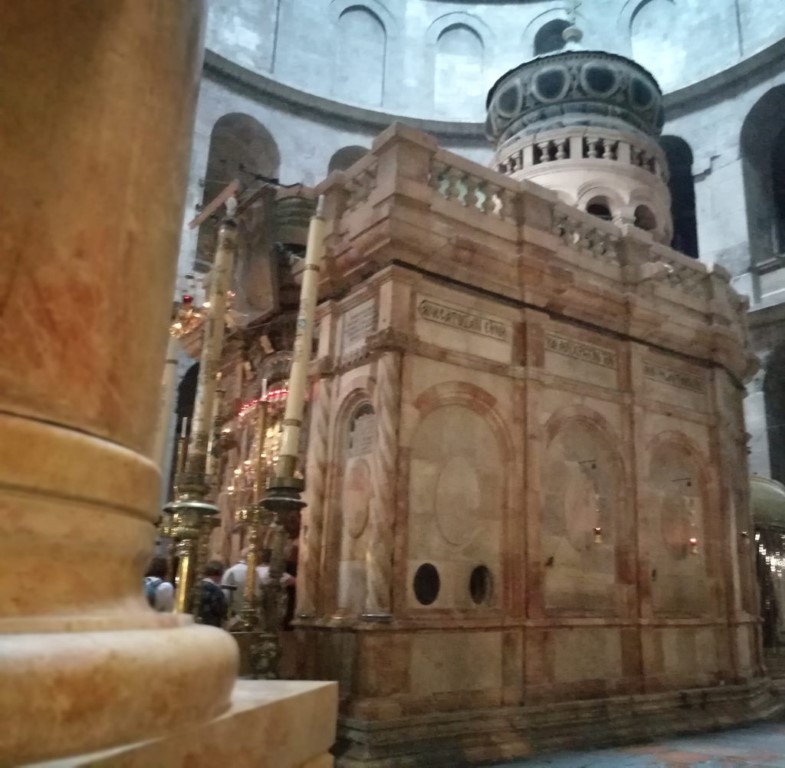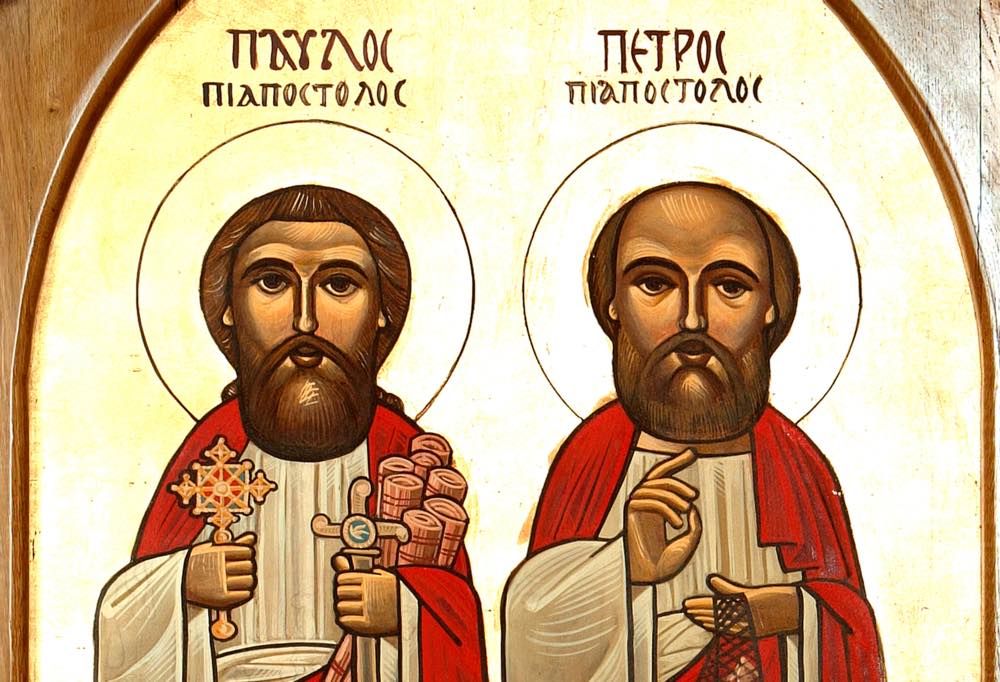【圖片來源】The monument enclosing the Holy Sepulcher, from which Christ rose again from the dead. (Photo by JMO Mandia.)
– Rev José Mario O. Mandía
Jesus Christ became man. This is the mystery of the Incarnation. What does “Incarnation” mean?
The CCCC, no 86, explains: “The Church calls the mystery of the wonderful union of the divine and human natures in the one divine Person of the Word the ‘Incarnation.’ To bring about our salvation the Son of God was made ‘flesh’ (John 1:14) and became truly man. Faith in the Incarnation is a distinctive sign of the Christian faith.”
Points 87 and 89 of the same Compendium repeat the same idea.
“Jesus is inseparably true God and true man in the unity of his divine Person. As the Son of God, who is ‘begotten, not made, consubstantial with the Father,’ he was made true man, our brother, without ceasing to be God, our Lord.”
“The Church confesses that Jesus Christ is true God and true man, with two natures, a divine nature and a human nature, not confused with each other but united in the Person of the Word. Therefore, in the humanity of Jesus all things – his miracles, his suffering, and his death – must be attributed to his divine Person which acts by means of his assumed human nature.”
As God, Jesus possesses all the divine attributes, he has power over all creation. With his divine nature, Jesus can do everything that God does.
As man, Jesus possesses all the qualities that we humans have. Through his human nature, Jesus can experience everything that humans experience and can do everything that man does, except sin.
But whether he acts as man or as God, it is the one Person of Jesus Christ acting.
Because Jesus Christ is man, He eats and drinks and acts in a human way. Because Jesus Christ is God, He can prophesy, do miracles, and so on. It is Jesus who acts, and He acts either through His divine nature or through His human nature.
Is it important that Jesus be true God and true Man?
Absolutely. If He were not true God and a mere man, His sacrifice would not be able to win the infinite merits that only God is worthy of acquiring. On the other hand, if he were not true man, He could not truly suffer and die. Redemption could only be achieved by having the two natures in one Person.
Next to the mystery of the Blessed Trinity (three Persons, one nature) is the mystery of the Incarnation of the Second Person (one Person, two natures). The union of Jesus Christ’s Divine nature with His human nature in one Person (the Person of the Word) is called the hypostatic union. As we have previously studied in the lesson on the Blessed Trinity, the term “nature” (Greek ousia) indicates what a thing is, while the term “person” (Greek hypostasis) indicates who it is.
In Jesus Christ, the Second Person of the Blessed Trinity, the two natures (human and divine) are united, but not mixed or confused.
CCC 464 explains it as follows: “The unique and altogether singular event of the Incarnation of the Son of God does not mean that Jesus Christ is part God and part man, nor does it imply that he is the result of a confused mixture of the divine and the human. He became truly man while remaining truly God. Jesus Christ is true God and true man.”
This “phenomenon” of the hypostatic union is unique. There has never been and will ever be anything like it. This is why some theologians who tried to explain it fell into error. Next time, we will see what those errors are.


 Follow
Follow


